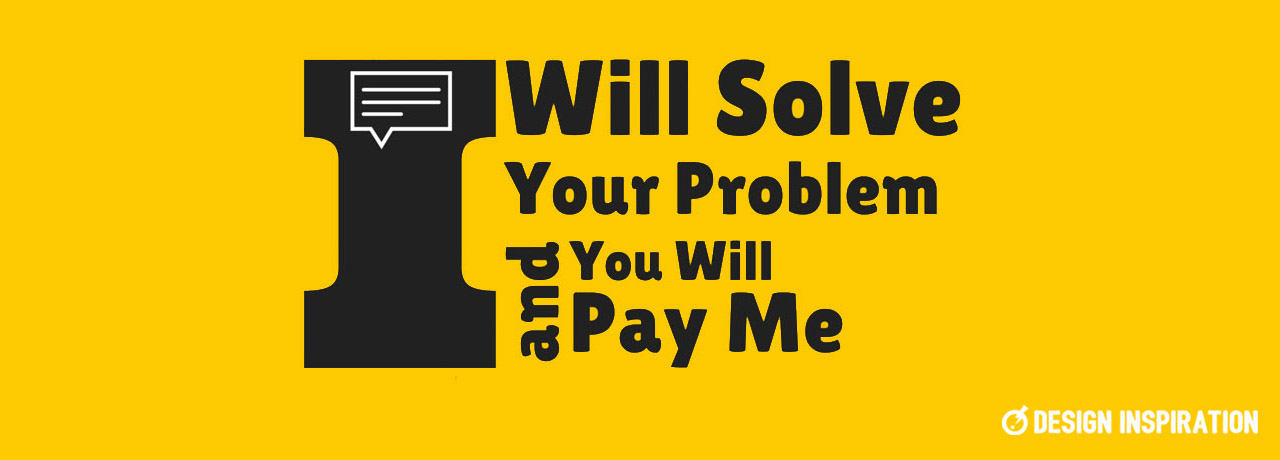
I Will Solve Your Problem and You Will Pay Me
Paul Rand
No-Nonsense Negotiation
The story is often told as an example of Rand’s no-nonsense approach to negotiation. He didn’t believe in allowing his client to alter the design. Rand was experienced enough to know that what he produced would be right. But I was pondering this quote the other day and it seemed about as clear a description of what all business is, in essence.
If There Were No Problems
If there were no problems in this world, we wouldn’t need to hire experts to solve them. If my carpets were dirty I would hire a professional cleaner to sort it out. When my car breaks down, I know I don’t have the skills and knowledge to fix it myself. The deal is that I have a problem and I need your expertise to fix it. We both know you’d soon starve if you didn’t charge me for sharing your expertise with me. This is the basic stuff of business.
We Each Have a Job to Do
When businesses have a problem with under-performing websites or with attracting clients via social media, they talk to us. Our job is to solve those problems. Our clients’ job is to pay us. We both know that this is the deal.
The Problem With Design Agencies
The problem is that too many design agencies are more concerned with their own image, reputation, and ego than they are with solving the problem that their clients have. They often do it because it helps them win more clients. That’s a bit like asking a builder to fix your leaking roof, only to be told that in order to fix your roof you’ll first have to pay for brand new overalls for the builders because they want to look better turned-out than their competitors.
What Our Clients Care About
Our clients don’t care whether we’ve won industry awards at black-tie dinners. They do care about how well we can solve their problem for them.
A Second Level of Meaning
But there is a second level of meaning to Rand’s statement to Steve Jobs, and that is addressed to clients. Once you have selected an expert to fix your problem, don’t second-guess them. Avoid trying to back-seat drive their work. If you have chosen a designer to create your corporate identity, try not to nit-pick over the colours or typography they have chosen. If you selected a real expert, they will have chosen those colours or that particular alignment of elements for reasons you may not actually comprehend.
Domain Knowledge
It is all about domain knowledge. Your domain knowledge might be all about auto sales, or cake-making, or finance or any number of other areas of skill that you have spent years developing. And in those areas, your designer should never comment or contradict you, because her domain knowledge is in corporate design, or digital design, or website design. It is vital to your business relationship that both client and supplier respect one another’s domain knowledge. After all, if you knew as much as they do in their field of expertise, you wouldn’t need to hire them to fix your problem.
The Next Step
So here’s what I say to any business that wants our help. We’ll use every ounce of our creative talent, hard-won expertise, and long experience to solve your problems, not ours. In return, you will pay us.
Does that work for you?
